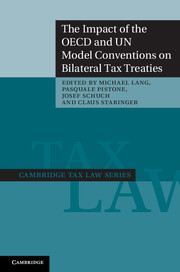Book contents
- Frontmatter
- Contents
- Contributors
- Preface
- Table of cases
- Table of statutes
- General report
- 1 Argentina
- 2 Australia
- 3 Austria
- 4 Belgium
- 5 Brazil
- 6 Canada
- 7 Chile
- 8 China
- 9 Colombia
- 10 Croatia
- 11 The Czech Republic
- 12 Estonia
- 13 Finland
- 14 France
- 15 Germany
- 16 Hong Kong
- 17 Hungary
- 18 India
- 19 Italy
- 20 Lebanon
- 21 Liechtenstein
- 22 The Netherlands
- 23 New Zealand
- 24 Norway
- 25 Peru
- 26 Poland
- 27 Portugal
- 28 Romania
- 29 The Russian Federation
- 30 Serbia
- 31 Slovakia
- 32 Slovenia
- 33 Spain
- 34 Sweden
- 35 Uganda
- 36 The UK
- 37 The USA
- Index
Preface
Published online by Cambridge University Press: 05 November 2014
- Frontmatter
- Contents
- Contributors
- Preface
- Table of cases
- Table of statutes
- General report
- 1 Argentina
- 2 Australia
- 3 Austria
- 4 Belgium
- 5 Brazil
- 6 Canada
- 7 Chile
- 8 China
- 9 Colombia
- 10 Croatia
- 11 The Czech Republic
- 12 Estonia
- 13 Finland
- 14 France
- 15 Germany
- 16 Hong Kong
- 17 Hungary
- 18 India
- 19 Italy
- 20 Lebanon
- 21 Liechtenstein
- 22 The Netherlands
- 23 New Zealand
- 24 Norway
- 25 Peru
- 26 Poland
- 27 Portugal
- 28 Romania
- 29 The Russian Federation
- 30 Serbia
- 31 Slovakia
- 32 Slovenia
- 33 Spain
- 34 Sweden
- 35 Uganda
- 36 The UK
- 37 The USA
- Index
Summary
Preface
Tax treaties have existed for well over a century and have undoubtedly improved the legal framework for the exercise of taxing powers on cross-border economic relations. They are usually bilateral in scope and result from the negotiation of package deals that have yielded a highly diversified constellation of agreements. Since the 1920s the desire to achieve internationally accepted tax treaty practice has led international organisations to undertake activities in this domain, aimed at developing a reliable and policy-sound tax treaty framework that states would be able to take into account when concluding their own bilateral treaties. However, it was only after decades of activity by the Organisation for Economic Co-operation and Development (OECD) and the United Nations (UN) in this field that a convergence in the content of tax treaties could be seen. Meanwhile, the number of bilateral tax treaties around the world as well as their complexity have been increasing dramatically, giving rise to a highly varied set of rules in the absence of a proper customary international tax law and opening up room for a considerable growth in international tax planning. Some academics have successfully supplemented the efforts of the international organizations by writing works that have guided the evolution of scholarly legal debate over the interpretation of tax treaty clauses following the Models. However, the international academic legal thinking on tax treaties has so far generally focused only on such clauses, neglecting those that depart from them. Clauses deviating from the Models have been relegated to the area of regional dialogue or even to each country's national tax scene and have then been examined solely with a view to ascertaining their consistency with the respective national tax treaty policy. From the time the editors began to carry out interdisciplinary research activities with other scientists on international tax coordination and tax treaties, further repercussions have become evident. In particular, due to the needs of economists to streamline the information they analyse for the purpose of obtaining results from their research, they sometimes equate tax treaties with the clauses contained in the Models, simply assuming that no relevant differences exist with the bilateral treaties actually in force around the world. This book aims to fill a gap in legal tax literature by providing an innovative scientific support for establishing the boundaries of the influence of the OECD and UN Models on the drafting and interpretation of bilateral tax treaties around the world.
- Type
- Chapter
- Information
- The Impact of the OECD and UN Model Conventions on Bilateral Tax Treaties , pp. xxvii - xxixPublisher: Cambridge University PressPrint publication year: 2012
- 3
- Cited by



